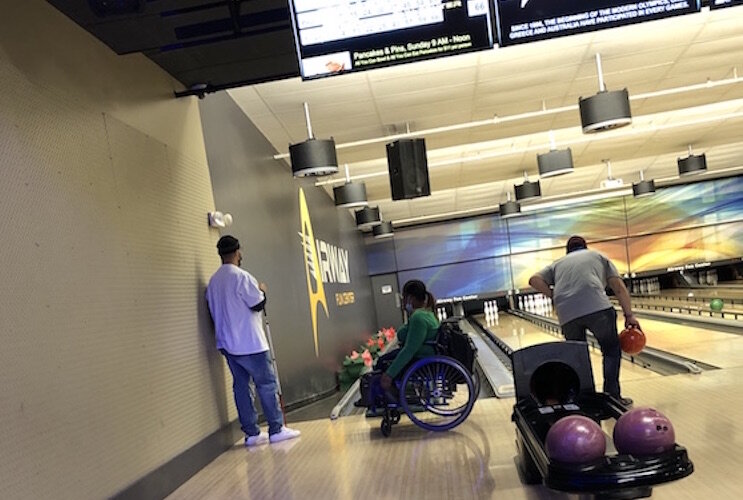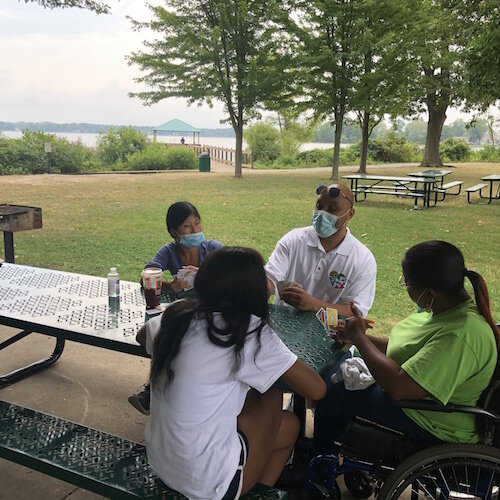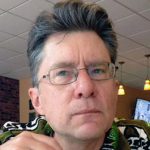Disabilities can lead to isolation. Friends With Disabilities fights it by building connections.
"It's for us and it's by us," is the way Sharmese Anderson describes the work of Friends With Disabilities. The Kalamazoo group led by those with disabilities not only offers activities like movies, bowling, and barbecues but a chance to make friends, too.
Isolation is rough on one’s emotional wellbeing, many have discovered in the past year.
But people with disabilities have more than just a pandemic making them feel like they’re forced to sit at home, alone.
Friends with Disabilities began in 2016, a Kalamazoo nonprofit run by “people with disabilities helping those in the community with physical disabilities,” the group’s president and CEO Sharmese Anderson says.
“We wanted to end isolation, and we wanted to bridge the gap between being isolated and having a fruitful life,” Paul Mayfield, Friends with Disabilities director of operations, says. “We’ve experienced being depressed and all the emotions that come with having disabilities, and we address those issues with our population of disabled.”
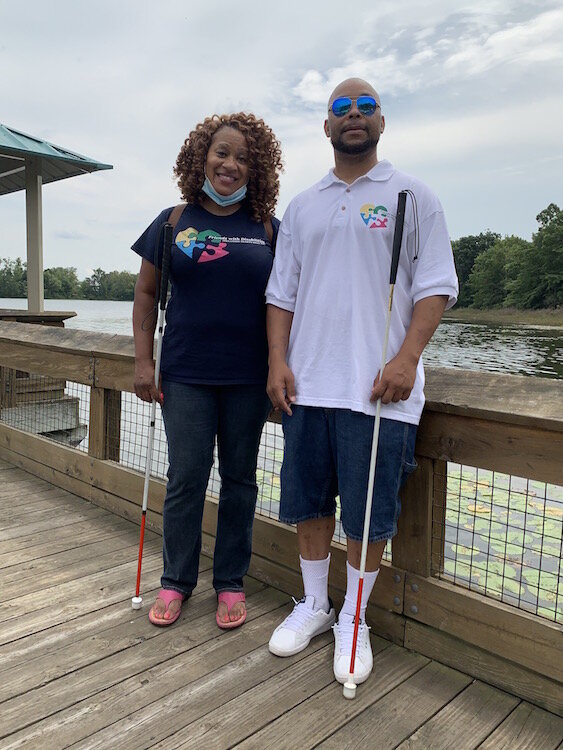
They have around 30 active members in the group but are always willing to accept more. Since 2016, the Kalamazoo nonprofit has held monthly get-togethers, outings to have fun, and meetings to discuss issues. “It’s a chance for people to meet someone else. We like to build connections,” Mayfield says.
But when the pandemic hit, getting together became difficult, and FWD found its members had new needs and strains on their lives.
“It’s for us, and it’s by us”
Mayfield and Anderson know how disabilities can lead to isolation. They both have retinitis pigmentosa and are legally blind.
Retinitis pigmentosa is a genetic disorder that can cause a gradual loss of vision. Anderson didn’t know she had it until she was 35 when she walked into her church one evening and couldn’t see. “I thought someone was playing a joke on me, put a bag over my head.”
She became legally blind in 2005. She felt isolated and lonely and faced despair. Anderson adjusted to her new life and formed Friends with Disabilities to help people facing the same challenges.
Mayfield had been diagnosed with retinitis pigmentosa as a child and told he’d be blind by age 20. That didn’t stop him from getting degrees in education at Michigan State University, and teaching in Detroit public schools for 13 years.
But in his 14th year, sight-loss quickly hit him. He felt he had to retire from teaching. He spent about six years alone, abusing alcohol to cope. “Before I joined Friends with Disabilities, I isolated myself, I was suffering from substance abuse and depression,” Mayfield says.
When he became a member, “I met new people, and I was able to get out of the house, I was able to counsel and be counseled.”
The two say they have members who have faced suicidal thoughts, substance abuse, and abandonment by friends and spouses.
One woman lost her sight, Anderson says, who “thought there was no life after blindness because all she knew how to do was be fully-sighted…. She said she would sit in her basement every day, and just pray, ask God to help her because she was having such a hard time.”
Someone suggested that she get in touch with Friends with Disabilities. She met with the group, Anderson says, and “literally just broke down and started crying. She said, ‘I really didn’t know there was life after blindness. I was on the verge of committing suicide. I didn’t know that anyone was out there for me.'”
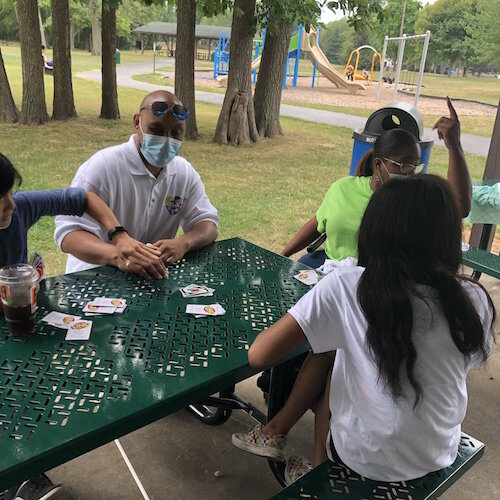
The two aren’t against people with disabilities seeing professional abled counselors or other organizations of the abled helping the disabled. But what is distinctive about Friends with Disabilities is “it’s for us, and it’s by us,” Mayfield says.
“They can come together with those like themselves, and guess what — we’ve been through the same things,” Anderson says. “So now we can have those conversations.”
It’s hard, she says, to talk to someone who isn’t disabled, even to a counselor, “to express to someone about losing some part of yourself…. I want to talk to somebody who’s actually been through that, to let me know there is hope for me.”
“Family of strength”
Their board members have disabilities, and most of their volunteers do as well. Mayfield says, “It’s not a charity, saying ‘look what I did today, I took a group of disabled people to the movies.'”
He continues, “together, we built a family of strength.”
Friends with Disabilities’ primary activity was to get their members “out into the public and do things that are fun,” Mayfield says. Movies, bowling, barbecues in local parks, all free with arranged transportation.
Their activities are also meant as community outreach, “educating and promoting inclusion in the community,” Anderson says. “We say together we can change the way people with disabilities are viewed.”
They want to be out in the public, to “show people, look, if we have disabilities and we’re out here smiling, why can’t you do the same thing?” Mayfield says. “We want them to see us still having our heads up high despite our depression, despite our shortcomings, we’re still here. And that’s the whole beauty of it because we actually get a chance to be ourselves without judgment from others because we’re all in this together.”
But when the pandemic hit, they had to modify their get-togethers, and members came under new stresses.
Meetings have been on Zoom, and small groups, socially distant, met where they could at places like Lakeview Park in Portage. “We have no members who’ve come down with COVID,” Mayfield says proudly.
This Saturday, March 6, Friends with Disabilities will be renting a movie theater to show a film and stay safe, with two people per row. Later events for the year include bowling, local sporting events, and a trip to Cedar Point — depending on the state of the pandemic.
Because of COVID, they had to step up to support members’ wellbeing. “We’ve been giving out masks, food, prescription pickup, prayer, you name it,” Mayfield says.
“We make sure that we address their needs, by any means necessary, even if it comes out of our own pocket,” he says. “Sometimes we don’t get to sleep, because we know that someone else is hurting, and we need to be there for them.”
Other forms of outreach include online talks on disabilities. February’s talk was on a simple, yet important, topic, “You Are Not Alone.”
“Once someone feels that someone else cares about them, it allows them to care about themselves more,” Mayfield says.
He continues, “If we’re all starting to care, that builds love. And with love, you don’t want to kill yourself anymore, you don’t want to drink all day, you don’t want to be isolated. You want to go out, to have fun, to laugh, create a friend list, have people to call on and go out with. And that’s what we’re all about.”

